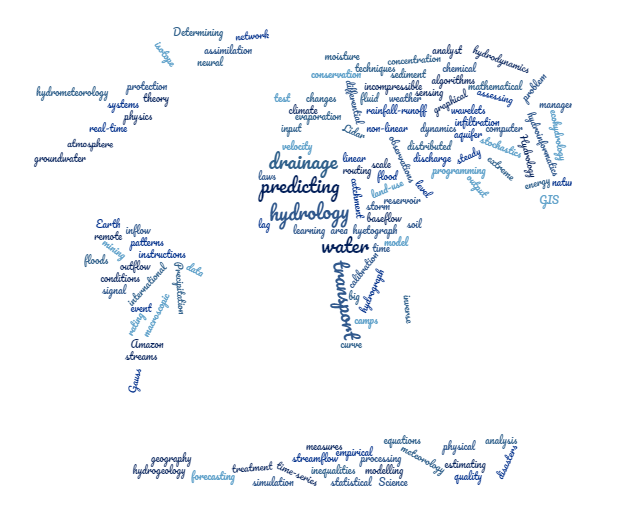Dr. Sébastien Pinel
Remote sensing, Hydrology, Hydrodynamics, Modeling, Data analyzing
My research focuses on the synergistic use of mathematics, remote sensing, GIS, in situ data collection and modeling techniques (physical or statistics) to characterize and monitor landscape structure, ecosystem processes and land-use changes in wetlands.
If people do not believe that mathematics is simple, it is only because they do not realize how complicated life is.
2020-2021
Associate Professor at UPVD – CEFREM
Research fields: Geosciences, remote sensing, hydrology, hydrodynamics, data analyst and modeling
Teaching: data sciences and statistics
2020-2021
Research engineer –Centre of Education and Research on Mediterranean Environments (UPVD/CEFREM)
Relation between mesocale marine circulation and local rain in the Gulf of Lion
2019-2020
Non-tenure assistant professor –Centre of Education and Research on Mediterranean Environments (UPVD/CEFREM)
Hydrodynamic and sediment transport modeling
Teaching of statistics
2018-2019
Post-doctoral position — Laboratory of industrial environment Engineering (IMT/LGEI, Alès, Fr.)
Peatlands contribution to the support of low-water: statistical analysis and modeling by artificial neural networks.
2017-2018
Research engineer — Research Institute for the Development
(IRD/UMR Espace-Dev, Montpellier, Fr.)
Hydrodynamics modeling; water zone detection by radar imagery.
I like challenges, without fear of failing and succeeding.

Somewhere in geosciences
-
Escales : et si lire devenait une expérience immersive et musicale ?
by Agnès Bugin, Directrice de la Communication on 5 March 2026 at 17 h 27 min
Ouvrez la page, écoutez et laissez-vous saisir. Avec Escales, Futura signe une création éditoriale inédite où l’image, le récit et la musique s’unissent pour donner au voyage une profondeur nouvelle. Les paysages vibrent, le vivant se […]
-
« C’est la vie des gens qui se joue » : la mer monte plus vite et 90 % des études ne l’ont pas vu venir !
by Nathalie Mayer, Journaliste on 5 March 2026 at 16 h 23 min
En matière de niveau de la mer, une étude publiée aujourd’hui dynamite les prévisions. Des vagues et des courants oubliés. Un niveau zéro mal estimé. Voilà comment des dizaines de millions de vies pourraient basculer […]
-
Depuis plus de 50 jours, la France ne revient pas à la normale… et ce n’est pas fini
by Karine Durand, Spécialiste météo extrême et environnement on 5 March 2026 at 14 h 57 min
Nous vivons actuellement une série inédite de douceur remarquable en France : les températures sont nettement au-dessus des moyennes de saison depuis le 12 janvier, soit depuis 52 jours consécutifs ! […]
-
Les orages vont s’aggraver, mais pour la première fois on sait exactement ce qui peut les rendre explosifs !
by Nathalie Mayer, Journaliste on 5 March 2026 at 11 h 45 min
Réputés imprévisibles, les orages s’intensifient avec le réchauffement. Ces dernières années, ils ont tué des dizaines de milliers de personnes et fait des centaines de milliards de dégâts. Et si leur secret venait enfin d’être […]
